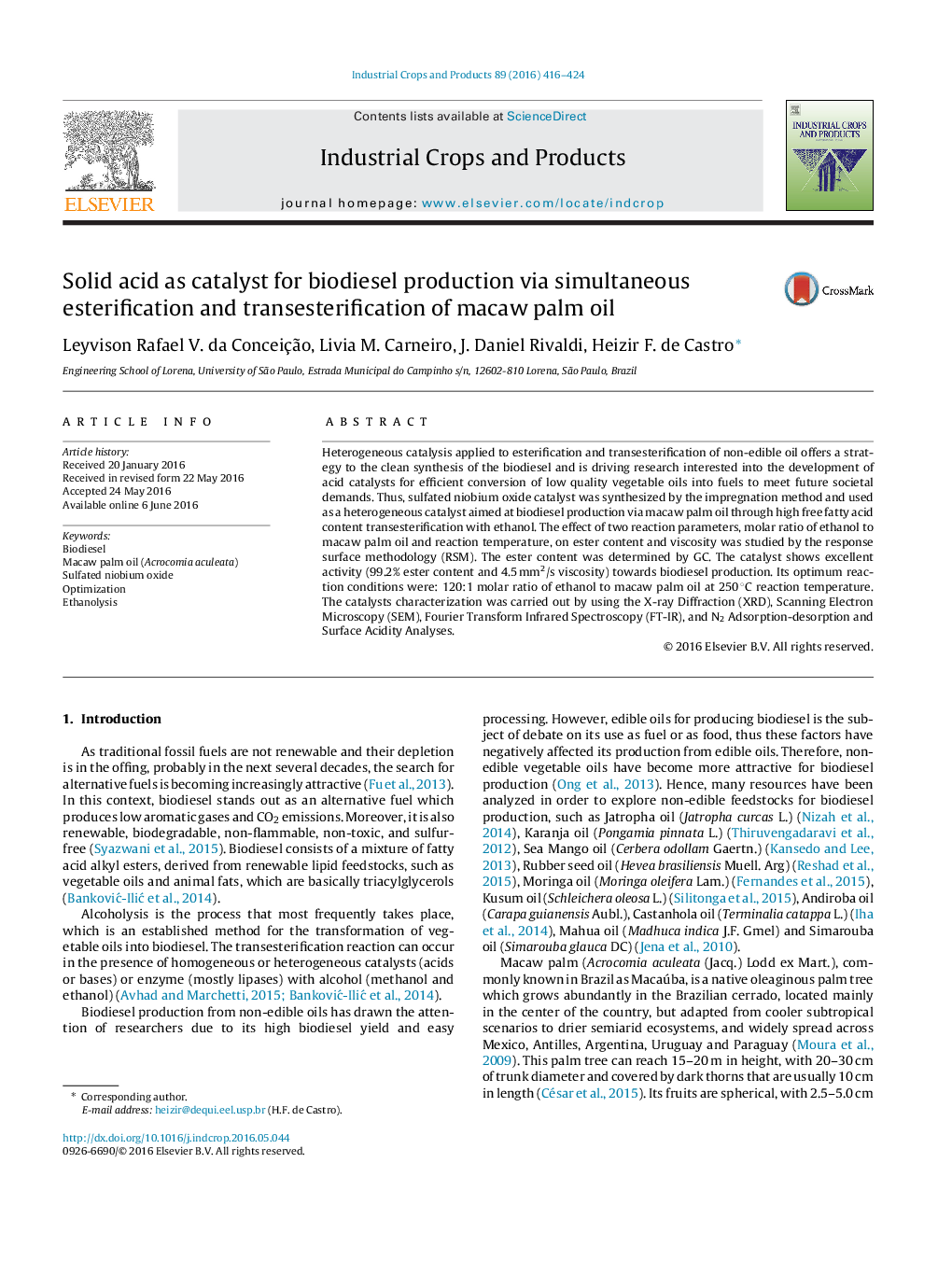| Article ID | Journal | Published Year | Pages | File Type |
|---|---|---|---|---|
| 4512173 | Industrial Crops and Products | 2016 | 9 Pages |
•Sulfated niobium oxide shows efficient conversion of macaw palm oil into biodiesel.•Process conditions were established by response surface methodology.•Results are in close agreement with the model predictions.•The catalyst could be reused for five recycles with no major loss of activity.
Heterogeneous catalysis applied to esterification and transesterification of non-edible oil offers a strategy to the clean synthesis of the biodiesel and is driving research interested into the development of acid catalysts for efficient conversion of low quality vegetable oils into fuels to meet future societal demands. Thus, sulfated niobium oxide catalyst was synthesized by the impregnation method and used as a heterogeneous catalyst aimed at biodiesel production via macaw palm oil through high free fatty acid content transesterification with ethanol. The effect of two reaction parameters, molar ratio of ethanol to macaw palm oil and reaction temperature, on ester content and viscosity was studied by the response surface methodology (RSM). The ester content was determined by GC. The catalyst shows excellent activity (99.2% ester content and 4.5 mm2/s viscosity) towards biodiesel production. Its optimum reaction conditions were: 120:1 molar ratio of ethanol to macaw palm oil at 250 °C reaction temperature. The catalysts characterization was carried out by using the X-ray Diffraction (XRD), Scanning Electron Microscopy (SEM), Fourier Transform Infrared Spectroscopy (FT-IR), and N2 Adsorption-desorption and Surface Acidity Analyses.
Graphical abstractFigure optionsDownload full-size imageDownload as PowerPoint slide
